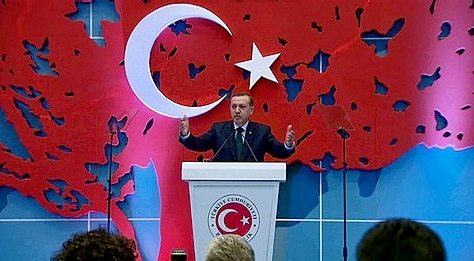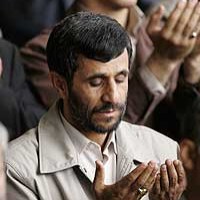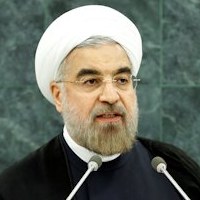![]()
Wed, June 22, 2011 | Rubin Reports | By Barry Rubin
Look Who Wants to lead the Middle East!
The article discusses the new contestants for leadership, responding to the United States sidelining itself or even coming out on the side of the radicals.
In the absence of U.S. leadership, others want to direct the Middle East. The battle is becoming a competition of radicals for run the region. That’s what happened in the 1950s and 1960s and it isn’t good. Then, the competition was between Egypt, Syria, and Iraq. Today, the contestants are Turkey, Iran, and a radical Egypt, with Iraq and Syria sidelined due to internal issues. Meanwhile, the Saudis have been forced to take over leadership of the remaining moderate Arab states (the Gulf sheikdoms, plus Morocco and Jordan) since they can no longer depend on America for protection.
The Egyptian foreign minister has warned Iran not to try to intervene too much in the Gulf, posing as protector of Saudi Arabia and the smaller states. This is a hint that Egypt wants to resume its pre-Sadat role as leader of the Arab world. Cairo will see itself as protector of the Muslim, Sunni, and Arab world against Persian, Shia Muslim Iran; Turkish Turkey; and Jewish Israel. With Iraq turned inward and Syria turned upside down, Egypt is the only remaining Arab state that can make a play for region-wide power.
That Egypt wants to stop Iranian expansion is a good thing, but that the next government — a radical, possibly Islamist one, will have its own ambitions isn’t. I predict that Egypt and Iran will tussle over who will be the patron of Hamas and that Egypt will win. It also seems likely that a radical, Islamist-influenced Egypt would be supportive of the Muslim Brotherhood in Syria and Jordan, too.
The Saudis are also reaching out. Their leadership of the Gulf Cooperation Council (GCC) in sending troops to Bahrain and tightening the security links among the members is another sign that they aren’t depending on the United States any more. Equally impressive is the GCC’s invitation to Jordan to join, a total break with past policy. This is a good thing since the Jordanians need help (particularly money) to stay stable and fend off Iranian influence and a Muslim Brotherhood takeover.
Iran’s ambitions are well-known but the statement of parliament speaker Ali Larijani (generally regarded as a “moderate” on the Islamic republic’s political spectrum) is still an escalation. He said that Tehran will “protect” Muslim states from U.S. and Israeli aggression. Clearly, this doesn’t include Libya where the Iranians hope that the United States and NATO will overthrow dictator Muammar Qadhafi and open the way for a radical Islamist dictatorship.
Of course, Iranian protection implies that regime’s hands around the neck of other countries. The regime now has Lebanon as a satellite, tremendous influence in Iraq and parts of Afghanistan, patronage over Hamas, and an alliance with Turkey and Syria. That’s a pretty good situation. And once it has nuclear weapons, the Iranian regime believes it can do whatever it wants and nobody will complain too much.
Then there’s Turkey. It is foolish and certainly outdated to see Turkey as somehow on the “West’s” side against Iran. First, Turkey is allied with Iran to a large extent. Second, if and when the two countries differ it is about how to carve up others. Kemal Ataturk’s wise injunction — the equivalent of George Washington’s avoiding “foreign entanglements” — of “peace at home, peace abroad” is being thrown on the garbage heap with all of his other hard-earned wisdom.
I don’t like the use of the word “Ottoman” to apply to post-Ataturk Turkey as there are simply too many differences and confusing nuances. After all, in modern history, despite the fact that its sultan was also the Muslim caliph, the Ottoman Empire functioned internationally as a normative power, not an Islamist state. It was also a status quo power seeking to preserve an existing empire and easily forming alliances with European states.
The new Turkey is ambitious, Islamist, anti-Western, and not likely to be a force for stability. In his victory speech, reelected Prime Minister Erdoğan did not mention Europe or the West even once. Though the Western media didn’t notice it in praising the victory of the Turkish Islamists he spoke as a Muslim leader.
Breaking with the orientation of the Turkish republic since the 1920s, Erdoğan began his speech by praising,
“All friendly and brotherly nations from Baghdad, Damascus, Beirut, Cairo, Sarajevo, Baku and Nicosia.”
He added:
“The hopes of the victims and the oppressed have won,” and, “Beirut has won as much as İzmir. West Bank, Gaza, Ramallah, Jerusalem have won as much as Diyarbakır. The Middle East, the Caucasus and the Balkans have won, just as Turkey has won.”
In talking about the Middle East, he wasn’t including Israel; in the Caucasus, he didn’t mean Armenia or Georgia; and as for the Balkans he didn’t mean Greece or Croatia or Yugoslavia.
As a Turkish journalist explained:
“The fact that he mentioned Sarajevo, while avoiding mention of Europe, clearly shows that he sees himself as the leader of the Muslims and that of those Muslims who are oppressed, not by their regimes, in the view of Erdoğan, but by the Christian West. So, Erdoğan’s world view, based on juxtaposing the oppressed East vis-à-vis the imperialist West, is here to stay.”
Is it of some concern that the leader of Turkey speaks in the same terms as the leader of Iran? You wouldn’t know it from Western coverage.
One point that isn’t properly understood is that if Iran, post-secular Turkey, post-Mubarak Egypt, and Syria (though sidelined by its own internal problems for now) may be contending to some extent, it isn’t good for Western or U.S. interests. They’re squabbling about who gets to devour what.
In this context, the battle over Syria should be understood. It is widely claimed that Turkey has broken with the Syrian regime as if this were a humanitarian impulse. There are proposals to use Turkey as a mediator and even reports that President Barack Obama is consulting Turkey about what to do in Syria.
Big mistake. True, Turkey has been allied with the dictatorship of President Hafiz al-Asad. But the revolution has posed a dilemma for Ankara. Asad is good. After all, he hates the United States (though the Obama administration doesn’t seem to notice) and Israel, supports revolutionary Islamists (Hamas, Hizballah, Iraqi insurgents), and is an ally of Iran. Iran and Hizballah, both of them Shia Muslim, prefer their ally Asad, who claims to be Shia Muslim.
But for the (Sunni) Islamists in Ankara, the Islamists in Damascus are better. The Turkish regime doesn’t want a moderate, pro-Western democratic government in Syria; it wants an Islamist, even more anti-American government in Syria.
So the Middle East is returning to a higher level of conflict and eventually bloodshed, in part thanks to U.S. bumbling. It’s a typical story. Obama thinks American power is evil and bullying, but by withdrawing it (except for the bizarre adventure in Libya), he is contributing to anarchy and the destruction of legitimate U.S. interests.
By the way, notice that — at least for the moment — the Arab-Israeli and Israel-Palestinian conflict is of no importance in all this. Yet that’s the issue the West is obsessed with, usually in ways that would weaken Israel and thus strengthen all of its enemies.
It’s a very sad and even more dangerous story. The hope is that as all these problems and disasters become more visible, the Western democracies will wake up and change their policies. Every minute counts.



 RSS
RSS











Latest Comments
Hello Mike, Thank you for your positive feedback to the article. I felt there wasn’t too much critical analysis of ...
Thanks for this considered and well constructed article. A follow up article on the manner in which the editorial contro...
THE CLUELESSNESS OF CLAIMING THAT OBAMA'S MIDDLE EAST POLICIES WERE A FAILURE CANNOT BE FURTHER FROM THE TRUTH, WHAT THE...
As long as Obama is the president of the usa do not trust the us government......
Thank you for an good read....